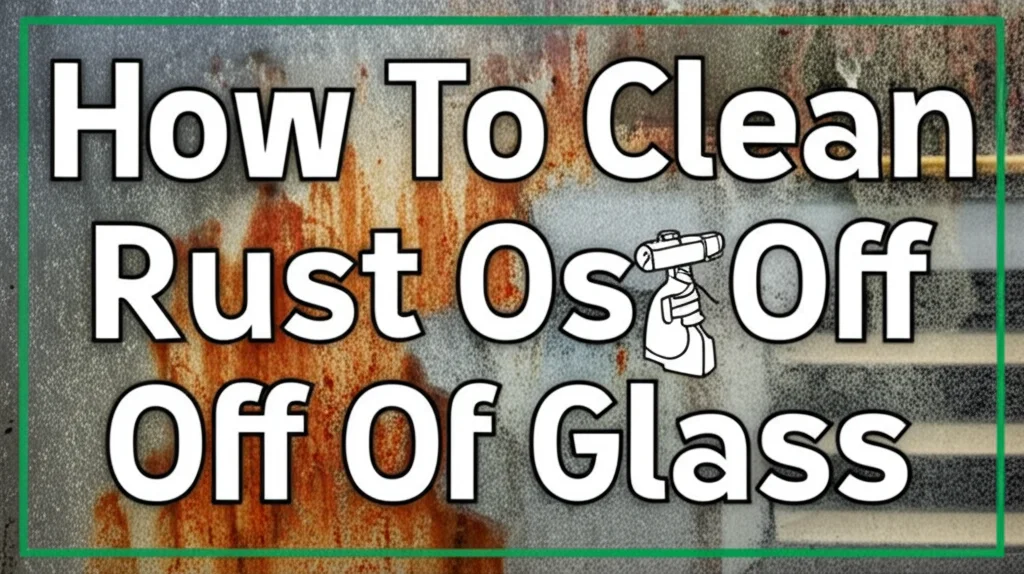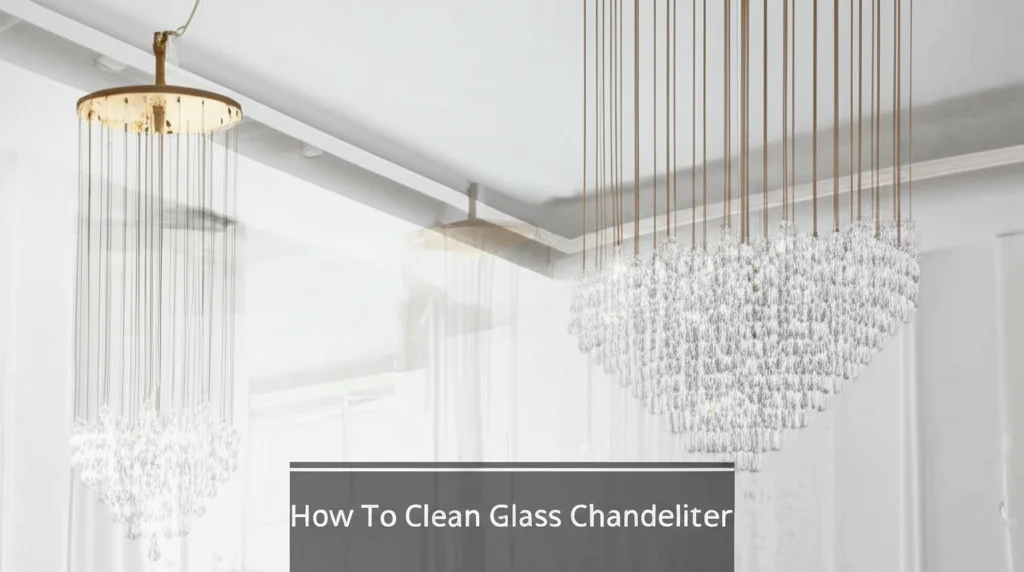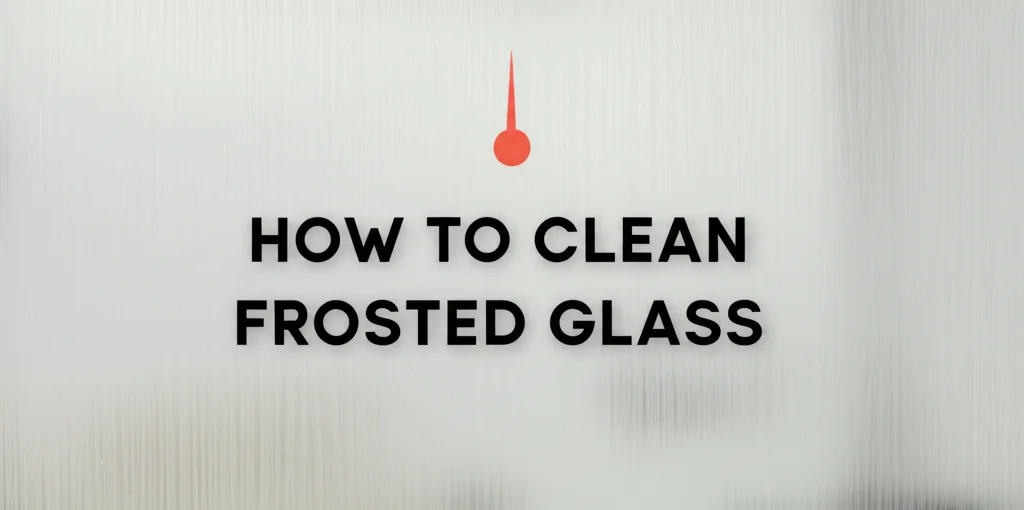· Home Cleaning · 6 min read
How To Clean Rust Off Of Glass

Removing Rust From Glass: A Simple Guide
Have you noticed unsightly orange stains appearing on your glass surfaces? That’s likely rust, and it can be a real eyesore. Rust on glass often happens when metal objects come into contact with the glass in damp conditions. Don’t worry, though! Cleaning rust off glass isn’t as difficult as you might think. This article will guide you through several effective methods to safely remove rust and restore your glass to its original shine. We’ll cover everything from simple household ingredients to more specialized cleaners, ensuring you find the perfect solution for your needs.
Can you remove rust from glass?
Yes, you can remove rust from glass using various methods, including vinegar, lemon juice, baking soda, and commercial rust removers. The key is to choose a gentle approach to avoid scratching the glass.
Key Takeaways:
- Vinegar and lemon juice are effective, natural rust removers for glass.
- Baking soda provides gentle abrasion for stubborn rust stains.
- Commercial rust removers offer stronger solutions for severe cases.
- Always test any cleaning solution in an inconspicuous area first.
Understanding Rust and Its Impact on Glass
Rust forms when iron or steel is exposed to oxygen and moisture. When metal objects, like screws, nails, or even outdoor furniture, touch glass and rust, the reddish-brown stain transfers to the glass surface. This isn’t just a cosmetic issue; if left untreated, rust can etch itself onto the glass, making it harder to remove. Understanding how rust forms helps you prevent it in the future. Preventative measures, like keeping metal away from glass in damp environments, can save you cleaning time later.
The Power of Vinegar: A Natural Rust Remover
White vinegar is a fantastic, readily available solution for removing rust from glass. The acetic acid in vinegar dissolves rust, making it easy to wipe away. It’s a safe and effective option for light to moderate rust stains. You likely already have vinegar in your kitchen, making it a convenient choice.
How to Use Vinegar:
- Soak a cloth: Dip a clean cloth or paper towel in white vinegar.
- Apply to rust: Place the vinegar-soaked cloth directly onto the rust stain, ensuring it’s fully covered.
- Let it sit: Allow the vinegar to sit for 15-30 minutes, depending on the severity of the rust.
- Scrub gently: Gently scrub the area with a soft cloth or sponge. Avoid abrasive materials that could scratch the glass.
- Rinse and dry: Rinse the glass thoroughly with clean water and dry with a microfiber cloth. A clean, dry surface prevents new rust from forming.
Lemon Juice: Another Acidic Solution
Similar to vinegar, lemon juice contains citric acid, which effectively dissolves rust. It’s a great alternative if you prefer a more pleasant scent. Lemon juice is also a natural disinfectant, adding an extra cleaning benefit. Plus, the fresh scent can brighten up your cleaning experience.
Using Lemon Juice for Rust Removal:
- Apply lemon juice: Squeeze fresh lemon juice directly onto the rust stain.
- Sprinkle with salt (optional): For tougher stains, sprinkle a small amount of salt onto the lemon juice. The salt acts as a gentle abrasive.
- Let it sit: Allow the lemon juice (and salt, if used) to sit for 30 minutes to an hour.
- Scrub and rinse: Scrub gently with a soft cloth or sponge, then rinse thoroughly with clean water and dry. Ensure all lemon juice residue is removed to prevent stickiness.
Baking Soda: Gentle Abrasion for Stubborn Rust
Baking soda is a mild abrasive that can help lift stubborn rust stains without scratching the glass. It’s particularly effective when combined with water to form a paste. Baking soda is a versatile cleaning agent with many household uses.
Baking Soda Paste Method:
- Make a paste: Mix baking soda with water to create a thick paste.
- Apply to rust: Apply the paste to the rust stain, covering it completely.
- Let it sit: Allow the paste to sit for 30-60 minutes.
- Scrub gently: Gently scrub the area with a soft cloth or sponge in a circular motion.
- Rinse and dry: Rinse thoroughly with clean water and dry with a microfiber cloth. Repeat if necessary for particularly stubborn stains.
Commercial Rust Removers: For Severe Cases
For heavily rusted glass, commercial rust removers may be necessary. These products contain stronger chemicals designed to dissolve rust quickly. However, it’s crucial to use them with caution and follow the manufacturer’s instructions carefully. Always prioritize safety when using chemical cleaners.
Important Considerations:
- Read the label: Carefully read and understand the product’s instructions and safety precautions.
- Wear gloves and eye protection: Protect your skin and eyes from contact with the chemicals.
- Test in an inconspicuous area: Before applying the remover to the entire surface, test it in a small, hidden area to ensure it doesn’t damage the glass.
- Ventilate the area: Ensure good ventilation while using the product.
- Rinse thoroughly: After use, rinse the glass thoroughly with clean water to remove all traces of the remover. Proper rinsing is essential to prevent residue buildup.
Preventing Rust on Glass: Proactive Measures
Preventing rust is always easier than removing it. Here are a few tips to help you avoid rust stains on your glass surfaces:
- Keep metal away from glass in damp areas: Avoid placing metal objects directly on glass, especially in bathrooms or outdoors.
- Use plastic or rubber supports: Use plastic or rubber supports between metal and glass to prevent direct contact.
- Dry glass surfaces promptly: After exposure to water, dry glass surfaces thoroughly to prevent rust formation.
- Apply a protective coating: Consider applying a glass protectant to create a barrier against rust and other stains. These coatings can help repel water and prevent rust from forming.
- Regular cleaning: Regularly clean glass surfaces to remove any potential rust-causing contaminants. Consistent cleaning keeps surfaces looking their best.
FAQ: Addressing Common Rust Removal Questions
Q: Will steel wool remove rust from glass?
A: While steel wool can remove rust, it’s highly abrasive and likely to scratch the glass. It’s best to avoid using steel wool on glass surfaces. Opt for gentler methods like vinegar, lemon juice, or baking soda.
Q: Can I use bleach to remove rust from glass?
A: Bleach is not recommended for removing rust from glass. It can damage the glass and create harmful fumes when mixed with other cleaning agents.
Q: How long does it take to remove rust from glass?
A: The time it takes depends on the severity of the rust. Light stains may be removed in minutes, while heavier stains may require several hours or multiple applications.
Q: Is it possible to completely remove etched rust from glass?
A: If rust has deeply etched into the glass, complete removal may not be possible. However, you can minimize its appearance with polishing compounds designed for glass.
Conclusion: Restoring Your Glass to Its Former Glory
Cleaning rust off glass doesn’t have to be a daunting task. By utilizing simple household ingredients like vinegar, lemon juice, and baking soda, you can effectively remove rust stains and restore your glass to its original clarity. For more stubborn cases, commercial rust removers can provide a stronger solution, but always use them with caution. Remember, prevention is key! By taking proactive measures to keep metal away from glass in damp environments, you can minimize the risk of rust formation. Now that you know how to tackle rust, you can enjoy sparkling clean glass surfaces once again!




